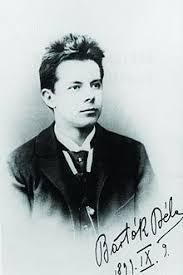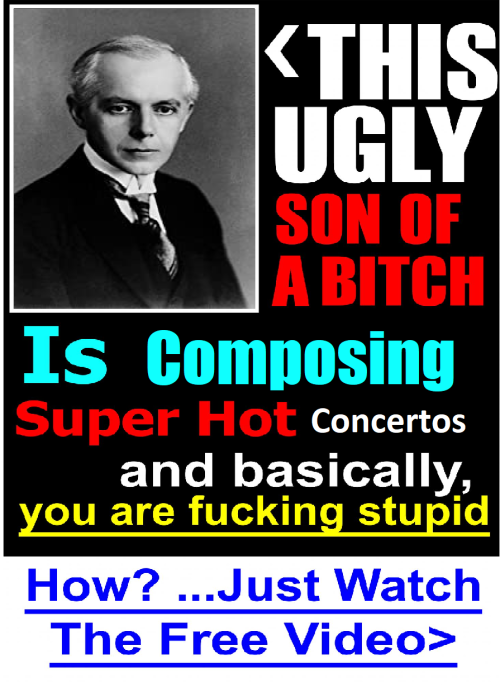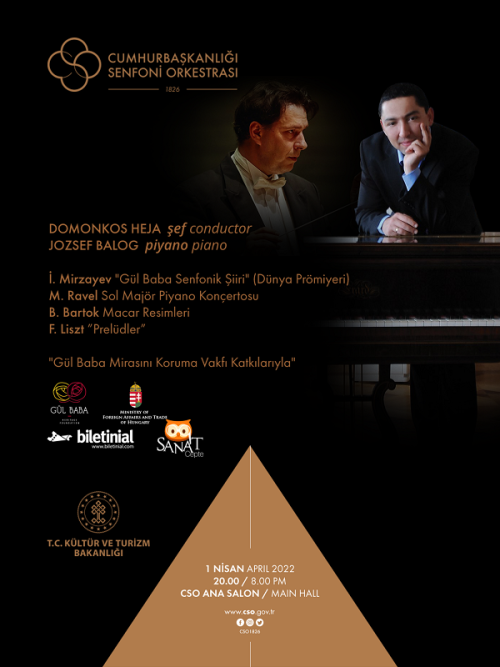#bela bartok
Where did the stereotype of classical music being boring and/or relaxing come from??
Like… have those people ever heard anything by Paganini? Bartok’s Piano Sonata?? The fucking Rite of Spring???
Is all classical music just Clair de Lune to these people?
Cumhurbaşkanlığı Senfoni Orkestrası
1 Nisan 2022 Cuma, 20:00
CSO Yeni Konser Salonu
- İlyas Mirzayev | ”Gül Baba”
- Maurice Ravel | Piyano Konçertosu
- Bela Bartok | Macar Resimleri
- Franz Lıszt | Prelüdler
Post link

Today marks the birthday of Bela Bartok, one of my favorite composers, for many reasons. Bartok grew up in that crazy period of the late Austro-Hungarian Empire, though he was farther south on the Danube than Vienna. Budapest in the late 19th and early 20th centuries was every bit the hotbed of artistic and literary activity that Vienna was, with all that complex, free-floating anxiety and sexual tension. He was fond of the harmonically ambiguous music of Franz Liszt at the end of his life, as well as Debussy’s explorations of whole tone scales and the possibilities of post-Wagnerian chromaticism. He was one of the few contemporary composers Arnold Schoenberg admired, and his music at times pushes very close to Schoenbergian atonality.
But - and here’s the key - it never quite goes over the line. As close as he comes to the “atonal plunge,” he never quite gets there. What I actually admire most about Bartok is his ability to mix atonal elements with tonal music. Listen to the amazing Sonata for 2 Pianos & Percussion (1937), for example. The first movement is dark and brooding, filled with complex counterpoint. The second movement is equally eerie and mysterious. And then in the third movement, the music suddenly turns brighter. I mean, it’s not wildly different in style or anything. It’s rather like the sun coming out after a couple of rainy days. He even ends the piece on an unabashedly major chord (preceded by what sounds like a mistake). It’s this sense of humor in his work that I admire.
As a teenager, discovering the Bartok String Quartets was a real game-changer for me as a composer, and a music-lover. The string quartet was, after all, a form born in the 18th century drawing room, and extended into a vehicle for deeply Romantic expression in the 19th century. But Bartok’s Third and Fourth quartets were explorations of color and dissonance and ways to approach musical form that went way beyond the 19th century. Indeed, the fact that there are a large number of successful string quartets operating in the music world, some of them specializing in contemporary music, is probably owed to Bartok’s reinvigorating of the medium. I recall checking out a disc from the public library, of Bartok’s Third & Fourth quartets, played by the Julliard Quartet, and just being blown away by it. I’d never heard music like that before. I listened to them over and over, trying to get a handle on what was going on. In the process, I learned how to listen to complicated music, and enjoy it!
I could cite a lot of other works that were influential to me. I recall listening to the Bartok Piano Concertos, first in a recording by Peter Serkin, and then by other pianists. I love the quiet string music at the beginning of the slow movement of Concerto #2, or the noisy introduction to #1, or the incredibly beautiful slow movement of #3. I vividly recall a performance in Chicago by pianist Mitsuko Uchida, with Pierre Boulez conducting, of #3, and I was in tears for much of that slow movement. It was one of the last performances Boulez conducted in Chicago, and the 3rd concerto was the last work Bartok wrote.
Bartok was also a favorite composer of film director Stanley Kubrick, who used Bartok’s music in a couple of his films. I once played Bartok’s Music for Strings, Percussion & Celesta for a friend of mine, and when it got to the third movement, he gasped “Oh my God, it’s The Shining!” Yes, very few composers manage “creepy” sounding music as effectively as Bartok; which is perhaps why those moments when the sun breaks out are all the more delightful.



